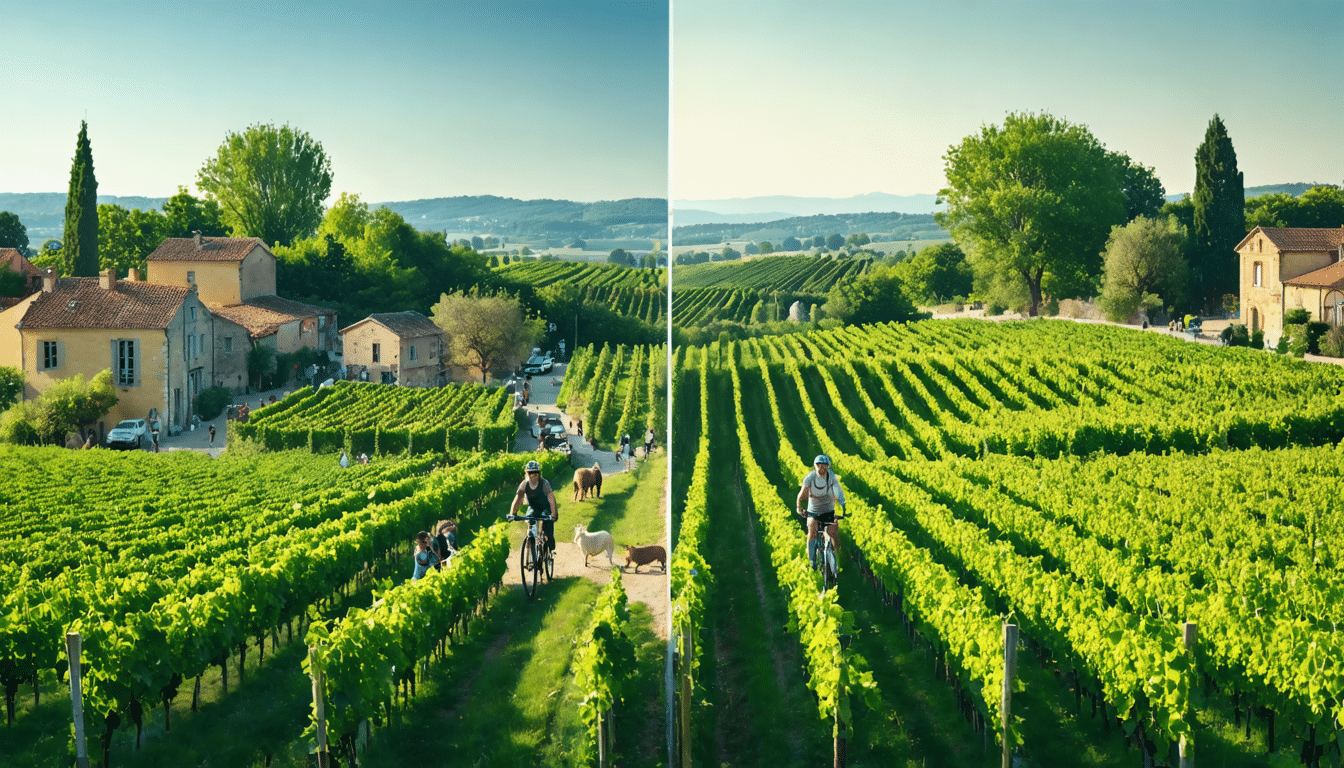|
IN BRIEF
|
Bordeaux, a dynamic city committed to ecological reforms, is the stage for a growing debate on the orientations of tourism. Between the ambition to become the leading sustainable tourism destination, fervently defended by certain political leaders, and calls for a thoughtful and necessary degrowth, the tension is palpable. This article explores the different visions of tourism that clash in Bordeaux, highlighting the social and environmental issues associated with them.
The framework of the Sustainable Tourism Universities #
On November 5, at the Bordeaux Convention Center, various stakeholders from the sector gathered for the Sustainable Tourism Universities. This gathering attracted a record attendance, drawing more than 550 participants, ranging from travel companies to ecological associations and local authorities. The event, organized by the tourism agencies of Bordeaux Métropole and the association Actors of Sustainable Tourism, aimed to examine how to apply the principles of sustainable development in the tourism sector.
Opposing visions for the future of tourism #
The opening of the 2024 edition was marked by an enlightening confrontation between two visions of tourism. On one side, Marina Ferrari, the Minister of Tourism Economy, presents an optimistic vision, emphasizing the development of sustainable tourism capable of making France the leading destination of this type in the world. In the face of the threat of climate disasters, she seems to believe in an evolution towards a tourism more aware of its environmental footprint.
In opposition, Cyril Dion, a recognized environmental activist, defends a radically different approach. He criticizes the logic of growth, even when labeled green, and calls for a transition to a sobriety that values sharing space with nature. For him, simply reducing the pressures on the environment is no longer sufficient; we need to rethink our relationship with tourism and nature deeply.
The principles of sustainable tourism #
At the heart of Marina Ferrari’s strategy lie concepts such as slow tourism, bike tourism, and wine tourism. Slow tourism encourages taking the time to appreciate the natural and cultural riches of destinations. Bike tourism, for its part, shows that those who travel by bike spend an average of 68 euros per day in the territory, thus demonstrating the positive impact of these practices on the local economy. Furthermore, wine tourism is highlighted as a means of promoting a way of life in harmony with Bordeaux’s wine-growing landscapes.
À lire travel advisory for the United States for a popular cruise destination
The challenges of degrowth tourism #
Cyril Dion, for his part, proposes an alternative vision, labeling his approach as “lazy tourism”. He advocates for a return to simple vacations, fostering a deeper commitment to nature and a disconnection from overconsumption. For him, true wealth lies in the quality of the experiences lived and interactions with ecosystems. His famous quote from Hubert Reeves perfectly illustrates his thinking: “Talking about sustainable development is like being on a train speeding towards a wall at 300 km per hour…” This metaphor underscores the urgency of acting beyond mere sustainable development measures.
Towards a new tourism model in Bordeaux #
In this context, local initiatives are being established. Participants at the edition of the Sustainable Tourism Universities have the opportunity to discover concrete projects, such as those in the Médoc and the Arcachon basin, that adapt to climatic challenges while maintaining environmentally respectful tourism. These experiences aim not only to share feedback but also to build a tourism model that combines environmental protection and economic development.
Thus, Bordeaux finds itself at a crucial crossroads in its tourism development, where the confrontations between the desire for sustainable growth and the principles of sobriety offer a wealth of ideas to explore. This debate, far from being a mere clash, could be an opportunity for genuine advances towards a tourism respectful of individuals and nature.


